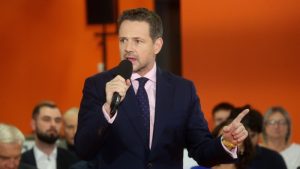The battle of Labour’s three brains
Unlock the Editor’s Digest for free
Roula Khalaf, Editor of the FT, selects her favourite stories in this weekly newsletter.
The Labour party has two brains and a Labour government has three. The story of this Starmer administration — assuming it is not entirely derailed by self-inflicted political mis-steps and clothing gifts — will be determined by the tussle between these three mindsets.
The first two, the ones which animate the party, are a working-class brain and a progressive brain. The third, which fired up in government, is what is often called Treasury brain. This elevates fiscal prudence and securing growth. The three often overlap and most ministers have a combination. But the party’s character is set by whichever one is in the ascendant.
Keir Starmer’s sorely needed Downing Street shake-up is rightly viewed as an attempt to tackle weakness at the centre of government. But replacing his chief of staff Sue Gray with his campaign supremo Morgan McSweeney also gives primacy to someone who prioritises working-class brain.
Working-class brain is now his operation’s dominant instinct. Starmer’s preferred term is “working people” (his definition is vague but appears to mean those without savings to fall back on). But many in cabinet identify themselves as having a working-class background — in some instances involving real hardship. They see the primary mission as fulfilling Starmer’s consistent pledge to “put Labour back in the service of working people”, not least in rebuilding the public services on which they rely.
This outlook is the driving force behind Thursday’s employment rights package, though Treasury brain has softened some measures. Working-people brain also displays some of the “blue Labour” cultural conservatism on issues such as crime, immigration and defence. It supports growth and fiscal prudence, because financial crises hit the most embattled hardest, but will not let Treasury brain be a blocker — as business taxes in the Budget will prove.
Progressive brain focuses more on ideological causes around social justice, minority rights and global affairs. It is associated with Labour’s graduate middle-class supporters and the Ed Miliband leadership years; it is animated by net zero, wealth taxes, human rights, higher spending, opposition to Brexit and welfare crackdowns. Working-people brain is more concerned with the NHS or cost of living. It is less troubled by ownership of services than whether they work.
Immigration offers an example of these tensions. Progressive thinking is more welcoming — and sensitive to anything that looks like racism. But Labour’s working-people brain is dominant here, stressing that the UK must train more homegrown workers. Net zero may offer similar tensions if household costs rise or the “good” new decarbonised jobs do not materialise.
McSweeney, the architect of Labour’s landslide, believes that under Tony Blair’s globalist economics the party lost sight of working people. One reason the row over Starmer’s free suits has been so damaging is that it reinforces the impression of a detached elite.
The new chief of staff is clear that a second election victory requires working people to feel that their lives are improving under Labour. (He may need to broaden the definition. Fiscal drag will pull a quarter of teachers and an eighth of nurses into the upper tax band by 2027.)
First, the incoming team must address the failings at the centre. Communications have been weak, the new mission boards, set up to deliver Starmer’s overarching pledges, are off to a slow start. McSweeney wants much more effective use of data, not only on whether targets are being met but whether voters are noticing and giving Labour credit.
Starmer himself seems less inclined to direct than to preside and adjudicate between cabinet colleagues. This strengthens the Treasury’s voice. Given the prime minister’s sluggish air so far, McSweeney will have to be his political wing. Beyond the operations upgrade, he will be crucial in prioritising working-people brain in the balance of decision-making. As Treasury thinking can never be removed from calculations, progressive brain will be the most diminished.
After the Downing Street shake-up comes the defining event: Rachel Reeves’s first Budget. The chancellor has promised to “invest, invest invest” and plans to modify debt definitions to offer more scope for borrowing. But the spectre of the Truss mini-budget looms large in Treasury brain.
While Reeves cannot be reckless, a confident plan for investment in infrastructure is central to giving Labour a launch pad and a narrative of national renewal. The Growth Group of up to 100 Labour MPs wants to see her eschew caution in favour of a bold investment agenda, not least because it can take years for effects to be felt. One government member believes Reeves will “go cautiously big”, adding: “After the Budget, politics will look a lot more normal again.”
McSweeney’s first task is to bring order to Downing Street but his elevation also needs to herald a sharpening of Labour’s messaging and decision-making to cement the link between its promises and actions.
As his first 100 days ticks round this weekend, Starmer knows mistakes, unreadiness, and a delay before the Budget have denied Labour the start it would have wished. At times it feels as if we are still waiting for the new government to start. This month must mark the end of the beginning.
#battle #Labours #brains




